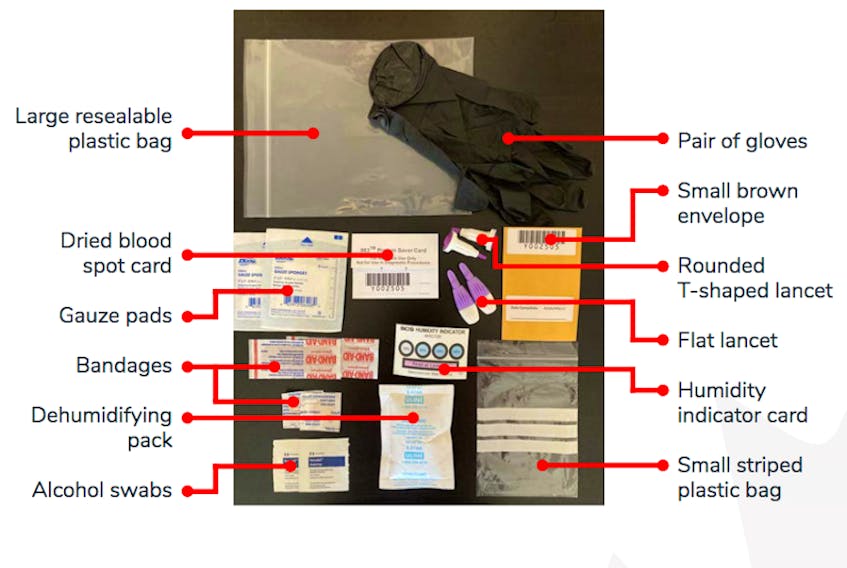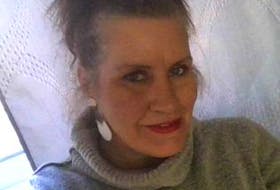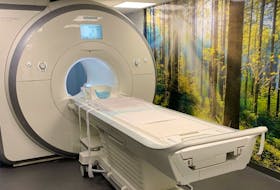ST. JOHN'S, N.L. — If you’re a diabetic, you probably know what it’s like to prick your finger to get a blood sugar reading. If you’re not, Canada may be calling you to let a little blood as a civic duty.
The COVID-19 Immunity Task Force recently rolled out its latest wave of antibody home test kits in its effort to map the prevalence of COVID-19 in the country.
This past week, 22,000 of the test kits were mailed to randomly selected Canadians. That’s in addition to 4,000 that were sent before Christmas.
In total, 48,000 test kits will be distributed, and Newfoundland and Labrador’s share of that will be almost 3,600.
Dr. Catherine Hankins, chair of the task force, says she hopes people realize the service they’re providing by participating.
“There are two big reasons to participate,” she said this week. “One is you’re being called to serve, in a sense — to serve your province and your country by helping gather information that’s going to be useful to decision-makers … but also, you get to learn your own result, and I can tell you a lot of people are curious.”
However, you can't volunteer to do the test unless you've received a kit.
The daily count of COVID-19 cases that appears in the news only tallies those who have tested positive for the disease through PCR testing. That’s a genetic test that can detect even the smallest amount of virus in a person's airways.
An antibody test is different. It detects the cells a person's body creates to combat the virus. They can linger for months, or even a year or more, long after a person has recovered.
They will also be there even if a person didn’t know they had the disease.
Homegrown test
One advantage of the Canadian-made test the task force is using is that it can detect the difference between the antibodies that occur naturally to fight viral infection, and those that are induced by a vaccine. Commercially produced tests have not been able to do that until now.
Michael Grant, an immunologist at Memorial University in St. John’s, says tests they conducted last year did not have that capability.
In his study, Grant said, they recruited people who had COVID-19 or thought they might have it or been exposed to it.
Out of 160 volunteers, they found only two cases of people who tested negative for the coronavirus but actually had the antibodies. One of them was someone who had quarantined during a cruise, and tested negative when they got back.
However, Grant says he was encouraged by the fact some people still had antibodies in their system several months after being exposed.
“It would suggest to me that the (infection) immunity is going to last at least as long as the vaccine-based immunity," he said. “That’s all we can say so far, because it hasn’t been that long a time.”
Grant said the task force study will offer some important insights, and may even help inform who is best to vaccinate after the high-priority groups are covered.
“Right now, the public health approach is that everyone should get the vaccine,” he said.
But he adds that 48,000 tests will only tell so much.
“They would have to get out a lot in order to cover the entire country and be able to get an accurate idea of prevalence in different regions,” he said.
Hankins agrees the sample size won’t give a clear picture of specific regions of a given province, and tests aren’t being distributed to Indigenous reservations, military facilities or prisons.
But the algorithm used by Statistics Canada ensures a representative cross-section of age and gender.
That’s why she is hoping for a high participation rate.
“You’re representing not just yourself,” she tells test recipients, “but everybody else your age, your sex and your province, so you’re really important.”
Peter Jackson is a Local Journalism Initiative reporter covering health for The Telegram.









